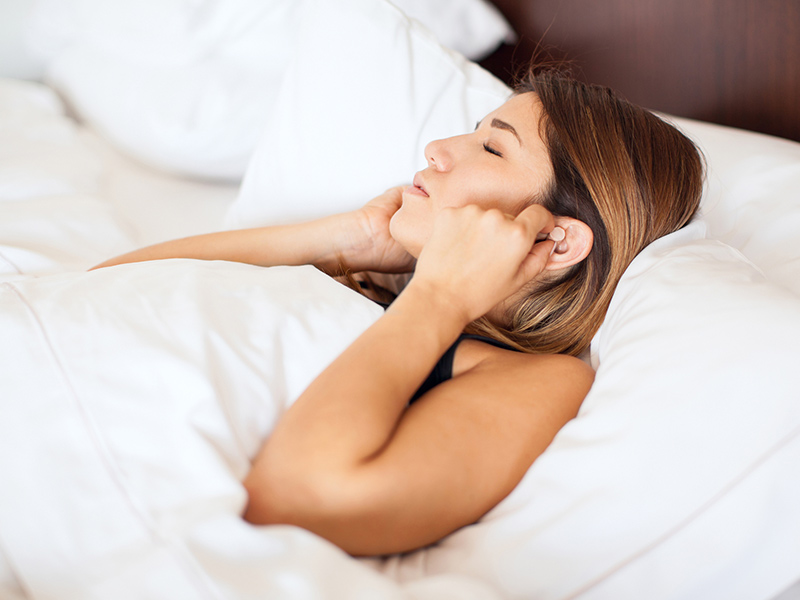If you are having difficulty falling asleep because of noise, you may opt to plug in a pair of earplugs before you go to bed. There are a wide range of earplugs you can choose from to effectively reduce or block any volume of noise that can prevent you from getting the sleep your mind and body need to function properly.
However, no matter what type of earplugs you use at night, there are some important factors you should consider to prevent the occurrence of ear complications, particularly if you use earplugs on a regular basis.
Avoid ear infections
Using earplugs in the wrong way can result in ear infections. Ear infections can take place when the earplugs prevent wax in your ear from naturally falling out. Because of the bacteria in earwax, having a buildup of wax in your ears can result in an infection. Ear infections can cause spur inflammation and the buildup of fluids, which can lead to earaches and even temporary hearing loss if the condition is not treated.
Be hygienic
If you plan to use earplugs regularly, hygiene is vital. Your ears can be exposed to bacteria that find their way onto the earplugs before you place them in your ears. Handling earplugs with hands that are dirty or placing the earplugs on dirty surfaces are just the most common ways earplugs come in contact with bacteria. You should make a habit of ensuring that your earplugs are clean before you begin using them by washing them with mild soap and drying them with a clean towel. A clean case can be used to store them when you are not using them.
Pushing earplugs too far inside your ears
Another concern when using earplugs while you sleep is how far they can move into your ears. Earplugs should be easily removable with your fingers. If you have to resort to using tweezers to remove them, they are too far down into your ears. If you tend to sleep on your side, an earplug can be forced further into your ear canal by the weight of your head, resulting in excessive pressure on to the sensitive parts of your ear, like your eardrum, and could tear the membrane. Damage to the ear canal can cause significant pain and long-term hearing loss. To avoid this, you can try sleeping on your back or using earplugs that are large enough to not be forced too deep into your ears.
Earplugs can make it easier for you to sleep throughout the night. Just make sure that you take the appropriate steps to minimize the risks that can come with using them while you are sleeping.

